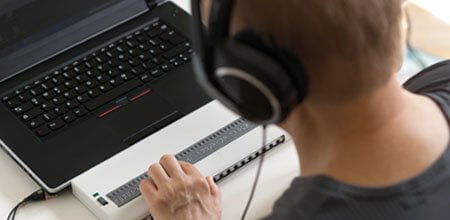Clinician Training and Confidence Are Associated with Portable Electronic Memory Device Use with Clients
Categories: Assistive Technology
What is the relationship between clinicians’ own experience, training, and confidence with portable electronic memory devices and their use of the same in rehabilitation with their clients?
Past Studies
Past Studies have found that the use of portable electronic devices (PEDs) may support or improve the functional abilities of individuals with traumatic brain injuries. Such electronic devices include beepers, voice recorders, and hand-held computers. Past studies have found that PEDs appear most useful for assisting individuals with learning and memory skills, as well as planning, organization, and initiation techniques. For example, PEDs can be helpful for providing reminders, such as using an alarm to remind an individual to take a medication at a certain time. A prior research study showed that clinicians who did not personally use a PED reported lower levels of confidence in their abilities to guide individuals with traumatic brain injuries to use the technology
This Study
This study surveyed 81 direct service providers with various educational specialties from four TBI Model Systems rehabilitation centers and one national TBI conference. The majority of the clinicians were
Who May Be Affected By These Findings
Individuals with traumatic brain injury, health care providers, researchers, assistive technology specialists.
Caveats
The results from this study cannot be generalized to all clinicians. The participants in this study were a group of clinicians that may be more experienced with portable electronic devices than the general population of clinicians because of the nature of their work.
Bottom Line
Clinicians in this study who had received training with PEDs and who had confidence teaching clients PED use were most likely to use them with clients. Ongoing PED training and maximizing clinician confidence using PED memory devices are important.
Please take a moment to comment on the value of this abstract:
Click here to take a brief survey
Find This Study
O’Neil-Pirozzi, T.M., Kendrick, H., Goldstein, R., & Glenn, M. (2004). Clinician influences on


